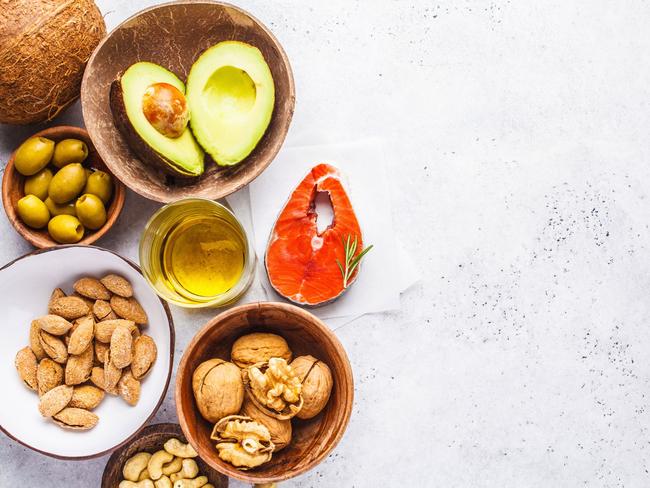Lyndi Cohen: What can help if you’re stopping a weight-loss drug
Here’s what happens when you come off these injections, and how you can maintain results in a healthy, sustainable way.
Weight Loss
Don't miss out on the headlines from Weight Loss. Followed categories will be added to My News.
Are you on Ozempic (or similar GLP-1 medications) and thinking about stopping?
Here’s what happens when you come off these injections, and how you can maintain results in a healthy, sustainable way.
First up: What’s going on with your body?
GLP-1 meds like Ozempic work by slowing digestion, reducing appetite, and helping regulate blood sugar.

When you stop taking them, those effects wear off.
This isn’t a sign your body is broken. It’s just adjusting.
So, if you notice:
•A return (and possible increase) in appetite
•Some weight regain
•Shifts in digestion or blood sugar
Don’t panic – it’s a sign your body is finding its balance again.
Should you worry about “metabolic rebound”?
The term “metabolic rebound” gets thrown around a lot, but it’s not a medical diagnosis.
It simply describes the body’s natural response to rapid weight loss.
When weight drops quickly, hunger hormones can increase, and fullness signals may dial down.
Not because your body is sabotaging you, but because it’s wired to protect you from starvation.
The good news? You can support your body through this transition gently and sustainably, without jumping on another diet.
How to support your body after stopping Ozempic
1. Eat regular, balanced meals
Skipping meals or trying to “make up” for eating more never ends well. Instead, focus on meals and snacks that include:
•Protein to keep you fuller for longer and helps preserve muscle. Think Greek yoghurt, eggs, tofu, chicken, beef, fish, chickpeas, lentils.
•Healthy fats like avocado, extra virgin olive oil (yes, the extra virgin matters), nuts, seeds, and oily fish to help you feel satisfied and support nutrient absorption.
•Slow-burning carbs, including wholegrain bread, oats, brown rice, quinoa and pasta. Remember, carbs aren’t the enemy. They’re your body’s preferred energy source and help keep your blood sugar and mood more stable.
•Fibre + antioxidants from veg, fruit, and legumes to support your digestion, appetite, and energy.

2. Make meals satisfying
The key to making eating healthily doable and enjoyable for the long term is to add the joy factor:
– Drizzle honey or add a few squares of chocolate to yoghurt with berries and muesli
– Add feta or Parmesan cheese to your vegies
– Use a flavour-packed salad dressing
Sure, it adds calories, but it could also mean the difference between feeling satisfied after eating or face-planting into a packet of biscuits later.
Swapping perfection for ‘healthy enough’ eating might be the best decision you make for long-term health benefits.
3. Move your body for your mental health first
Exercise isn’t about burning calories. It helps regulate appetite hormones, lifts your mood, and boosts energy.
But if it feels like a chore, it won’t stick. Start with movement that feels good: walking, stretching, dancing in your kitchen.
If it brings you joy, you’re more likely to keep doing it.
Coming off Ozempic doesn’t have to be overwhelming with the right approach and mindset. And if food still feels like a struggle, my Stop Struggling With Food guide can help you tune out the diet noise and feel normal around food.

Lyndi Cohen is a Sydney-based dietitian and nutritionist who is also the author of best-selling book The Nude Nutritionist. She has more than 300,000 followers on her Instagram @nude_nutritionist where she calls out wellness wankery and nutrition nonsense to promote a healthy body image. You can also visit her website www.lyndicohen.com
More Coverage
Originally published as Lyndi Cohen: What can help if you’re stopping a weight-loss drug




